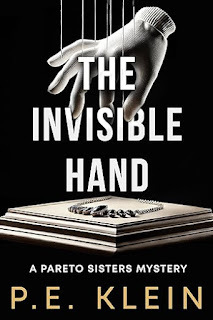Kenneth Atchity's Blog, page 8
March 10, 2025
Congratulations A.M Adair Quarter Finalist in the Table Read My Screenplay – Cannes 2025 Competition!
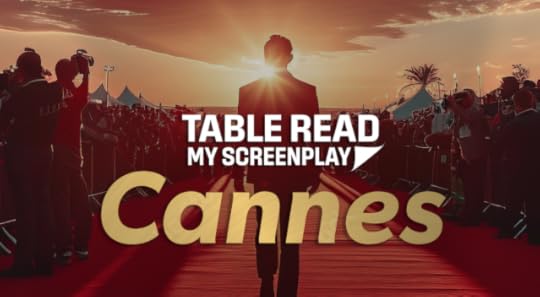
Story Merchant author A.M. Adair's screenplay Origin is in contention for a professionally directed table read in front of a live audience during the 2025 Cannes Festival.
Based on her novella Origin Story. A woman wakes from a coma to find herself in prison with no memory of who…or what she is. The vicious attack that almost killed her erased all that she was.
But not what she did.
Her name is Elyse Tyson.
And she’s a serial killer.
Or at least she was.

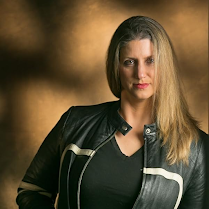 A. M. Adair is a retired Chief Warrant Officer from the United States Navy with over 21 years in the Intelligence Community—specializing in counterintelligence and human intelligence. She has been to numerous countries all around the world, to include multiple tours in Iraq, and Afghanistan. Her experiences have been unique and provided her imagination with a wealth of material to draw from to give her stories life. A lifelong fan of the genre, she is an associate member of International Thriller Writers. Her debut novel, Shadow Game, is the first book in the Elle Anderson series. It was published in October 2019 and then was turned into a graphic novel in January 2022. Book 2, The Deeper Shadow, was released in November 2020, and the explosive third installment, Shadow War, was released in March 2022. Autographed copies of her books, news, and interviews are available on amadair.com. She lives in Tennessee with her husband Jake, her daughter Arya, and son Finn.
A. M. Adair is a retired Chief Warrant Officer from the United States Navy with over 21 years in the Intelligence Community—specializing in counterintelligence and human intelligence. She has been to numerous countries all around the world, to include multiple tours in Iraq, and Afghanistan. Her experiences have been unique and provided her imagination with a wealth of material to draw from to give her stories life. A lifelong fan of the genre, she is an associate member of International Thriller Writers. Her debut novel, Shadow Game, is the first book in the Elle Anderson series. It was published in October 2019 and then was turned into a graphic novel in January 2022. Book 2, The Deeper Shadow, was released in November 2020, and the explosive third installment, Shadow War, was released in March 2022. Autographed copies of her books, news, and interviews are available on amadair.com. She lives in Tennessee with her husband Jake, her daughter Arya, and son Finn.
March 5, 2025
Writing while the World is on Fire - An Interview with Dennis Palumbo


How do you keep doing creative work when the world is falling apart around you? To sift through the despair and doubt, John welcomes back legendary Scriptnotes guest, writer-turned-psychotherapist Dennis Palumbo. They discuss the many feelings that catastrophic events can bring up in artists, the personal narratives that often inform those feelings, and how to keep moving forward when you feel like the band on the Titanic.
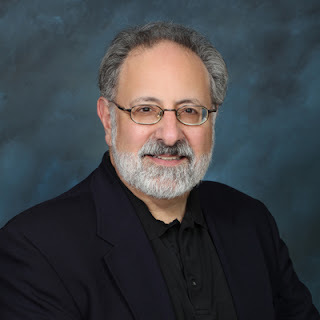
In our bonus segment for premium members, Dennis guides us through the best examples and worst mistakes of portraying therapists on screen.
DENNIS PALUMBO, MA, MFT, is a licensed psychotherapist in private practice who specializes in creative issues. He co-wrote the award-winning My Favorite Year screenplay and other films and TV—Consulting Producer on Hulu's The Patient and author of the Daniel Rinaldi Mysteries.
February 28, 2025
Under Consideration for International Impact Award Author of the Year - Frances Angelina!

AVAILABLE ON AMAZON
In Frances Angelina's Bobble Pops Series, you learn that virtues are simply good feelings and emotions that we all need to have inner peace and happy hope. The Virtues of Acceptance, Blessings, Cleanliness, Discipline, and Empathy come to life in fun, positive, and educational manners, by the Bobble Pops and Paradise Animals. Through daily learning, teaching, and modeling this book’s valuable virtues, you help your child/student gain values that benefit them in all stages of their life.
The combined results from public voting and the judging panel will determine the finalists and the winner. CAST YOUR VOTE HERE: https://internationalimpactbookawards.com/public-voting-form/
Finalists will be announced by May 15, 2025, and invited to attend the Grand Gala in Hollywood in person, where the Author of the Year 2025 will be revealed and celebrated.
Website: https://virtuepopsineducationandmore.study/
Facebook: https://www.facebook.com/VirtuePopsinEducationVirtueBooks/
Twitter: https://x.com/VirtuepopsnEdu
LinkedIN: https://www.linkedin.com/in/virtuepopsineducationvirtuebooks/
Instagram: https://www.instagram.com/virtuepopsineducation/
YOUTUBE: https://www.youtube.com/@virtuepopsineducationandmore/channels
February 26, 2025
Sampson’s Leo Daughtry Pens Debut Novel
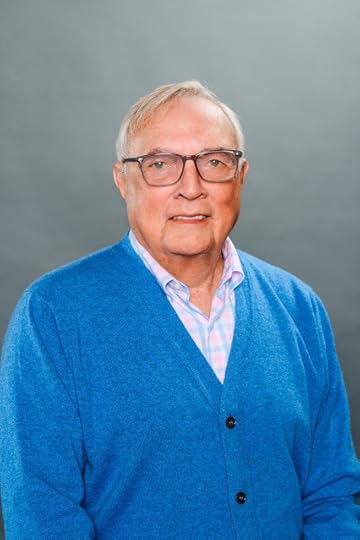
It’s been 10 years in the making, but former North Carolina state Representative and Senator Leo Daughtry has released his debut novel “Talmadge Farm.”
“My first and last, probably,” Daughtry joked over the phone about his book. “It’s a lot of work.”
Daughtry is a Sampson County native now living in Smithfield. His 320-page novel is available now for purchase at Amazon and Barnes & Noble.
He said last week that he’s spent years creating outlines for the book and then throwing them away before doing another one, all because they did not fit the story he wanted to tell.
“I probably started doing outlines 10 years ago. And I would do an outline, tear it up, and do another one. But I had in my head about what I wanted to do,” he said.
And that idea was to create a story based on events that he lived through growing up in Sampson County, namely sharecropping, the research into tobacco and how that affected the industry, and other societal changes taking place in the 1950s and 1960s.
“I wanted to have a book to sort of show the lives of the sharecroppers. And then show the changes that were taking place in the late 50s and 60s,” he admitted.
Daughtry went on to explain that his childhood of living in a rural town and going to a rural school where most of his classmates were the children of sharecroppers gave him the inspiration to write about their hardships and what happened to them as sharecropping started to die out.
“I went to a very rural school,” Daughtry explained of his years in the Hobbton district. “And in my class, I would say over half of the students, my classmates, were the children of sharecroppers. That was the way, in those days, that was the way farming was done.”
Making a living as a sharecropper, he said, was “a desperate and hard thing to do.” And that as the years went on, especially in the 1950s, it “became clear that sharecropping wasn’t really a good way to live.”
“Many of the children left the farm when they grew up,” Daughtry explained, “and some moved up north, particularly the African Americans. Many of them went into the army to get off the farm.”
He also mentioned woman getting clerical certificates to get an office job instead of working as a maid or in the fields, all of which were explored within the pages of “Talmadge Farm.”
But having children leave wasn’t the only change that happened to sharecropping families in this time.
Daughtry explained that the advances in technology and the growth of the farms led to sharecroppers leaving completely.
“You had the mechanization on the farms. Farms got larger, they consolidated, and so there was just no place for sharecroppers,” Daughtry said. “So, they left the farms. Some involuntary and some voluntary.”
Which then led to an influx of migrant workers, a subject that Daughtry also touched upon in his book. Other major events he talked about included segregation, the Vietnam War, and women’s rights.
And when talking about farming, Daughtry knew he would have to talk about the changes the tobacco industry and its farmers faced.
“Tobacco was king, but it was not going to be there forever. It was a contradiction. It was a way to make a living and support your family. And that’s a good thing. And then on the other hand, it was killing people who smoked and that’s a bad thing,” he explained.
Most of all, Daughtry wanted to tell a story through lenses of different characters, each with their own unique tie to the fictional Sampson County he had created in his book. They were characters, he said, that were easy to write and show the way that people in that time period could have adapted to all the changes happening around them.
“I think it was easier for the young people in the book to adapt and to change than it was for the older people. Their way of life was certainly, for the landowner, very satisfactory. They had someone going to work. They had someone looking after them. In other words, they had maids and cooks. They had a good life, and they didn’t particularly want to change,” Daughtry said about writing some of the characters.
A press release sent out by Books Forward gives “Talmadge Farm” the following synopsis:
“It’s 1957, and tobacco is king. Wealthy landowner Gordon Talmadge enjoys the lavish lifestyle he inherited but doesn’t like getting his hands dirty; he leaves that to the two sharecroppers – one white, one Black – who farm his tobacco but have bigger dreams for their own children. While Gordon takes no interest in the lives of his tenant farmers, a brutal attack between his son and the sharecropper children sets off a chain of events that leaves no one unscathed. Over the span of a decade, Gordon struggles to hold on to his family’s legacy as the old order makes way for a New South.”
February 24, 2025
Born to Talk Radio with Marsha Wietecha Interviews Nicole Conn

LISTEN NOW!
Enter the world where art, ambition, and betrayal collide.
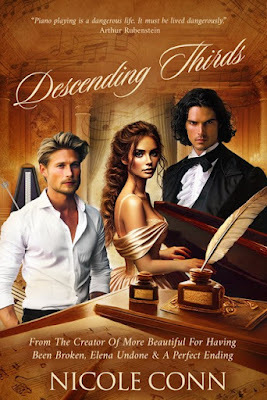
Now on Amazon
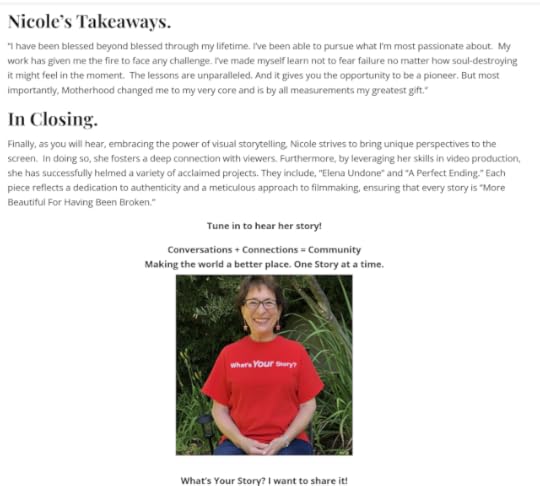
February 21, 2025
AUTHOR SPOTLIGHT: Interview with P.E. Klein Author of the Invisible Hand
 tervie“Think you’ve got what it takes to crack the code?”
tervie“Think you’ve got what it takes to crack the code?”The Invisible Hand – P.E. Klein
After recently reading The Invisible Hand by P.E. Klein and being blown away by its detail and mystery, it feels an honour to be finding out more about this author, including his favourite character in his debut, how long it took him to write said debut (disclaimer: it was FAST) and his favourite thing about being an author. You can read my review of The Invisible Hand here!
1. The Invisible Hand has so much happening all of the time (in the best way!) I imagine planning the book looked a little bit like an evidence board… How long did writing the book take, from the very first ideas to the final draft?
Alfred Hitchcock and his writers used a “set piece” approach (creating impactful scenes, then linking them together to create a story) to plot many of his films. I loosely followed that same writing strategy. The book took five months to write. During that time, I researched or wrote three hours each day. It took much longer (and was far more difficult) to navigate the many professional editorial cycles.
2. The Pareto girls are such memorable characters! How did you come up with the idea for them?
The characters are a product of my imagination. However, like many fictional characters, their actions and traits are inspired by real life people.
3. Which was your favourite character to create, and why?
Charlie is my favorite. I wanted to create a brilliant but flawed character. She misjudges everything, but things turn out fine for her in the end
4. Tell us about any plans you have for the next two books! Are they already plotted out?
The next two books of the trilogy are finished. Reader response to the first book will determine if they are published.
5. What three things do you think make a great story?
Relatable characters, fast moving plot and plenty of surprises.
6. Who is your favourite author and what is your favourite book of all time?
Impossible to pick just one, but Joseph Heller’s “Catch-22” is a masterpiece.
7. What’s your favourite thing about being an author?
I write for my two (now adult) daughters who seem to enjoy my quirky humor. I love hearing what they have to say.
8. Where do you see yourself in 5 years time?
I see myself spending even more time in Rome.
9. When you’re not writing, what do you like to do?https://aquintillionwords.com/2023/09/25/p-e-klein-author-interview/
International Latin ballroom dancing. I dance almost every day.
10. What’s one piece of advice you’d give to new authors?
Do not compromise on editorial talent. Editors are critical members of your team.
About the authorPaul Eric Klein lives a quiet life in Menlo Park, California. He has two adult daughters who should not be compared to the quirky and flawed characters in his books. The Invisible Hand is the first installment of a three-book series featuring the Pareto sisters.
via A Quintillion Words
February 19, 2025
A Quintillion Words Five Star Review for P.E. Klein's The Invisible Hand!
Overall Rating: ⭐⭐⭐⭐
“Think you’ve got what it takes to crack the code?”
A good, involving mystery is hard to find, but I’ve definitely found one in the form of The Invisible Hand! Even though it’s quite full on at times, it really is worth sticking with. Filled with wit, suspense and even a decent adventure, we follow the Pareto sisters on a pretty perilous journey doing what they do best – solving mysteries! Very happy to be sharing my review of the first book in what will be a trilogy by P.E. Klein!
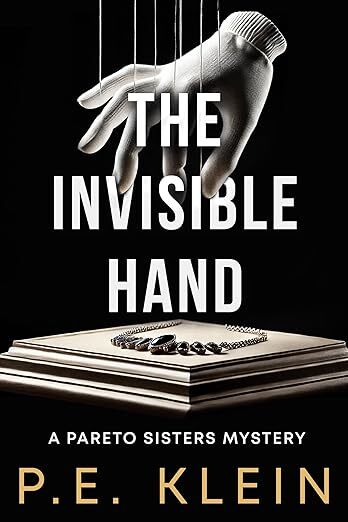 About the book
About the bookIn a neighborhood plagued by unseen terror, two sisters hold the key to outwitting a dark adversary before their lives unravel.
Ever heard of Fenton Pareto? He’s only the coolest private investigator around. But when the Bay Area turns into a nightmare of disappearing jewels, tormented pets, and mysteriously glitching cellphones, even he needs some backup. Enter Charlie and Clarke Pareto, his super-smart daughters, ready to take on the mystery that’s stumping their dad.
Think you’ve got what it takes to crack the code? Then strap in for a rollercoaster ride with the Pareto sisters, as they match wits with a remote enemy who’s controlling the chaos like a puppet master. And just when you think it couldn’t get crazier, the sisters get framed for a crime they didn’t commit!
But, how are the sisters supposed to clear their names while dodging booby traps, weaponized music, and dangerous QR codes? With a hefty dose of courage, a dash of stubbornness, and a custom-made secret weapon – their razor-sharp minds.
The beginningI know a great writer when I see one and THIS is one author I’ll be keeping a close eye on! The opening to this book was filled with a type of language and tone that simply delighted my brain, and thankfully, this is what we were getting throughout the whole book. A mix of really intelligent humour with incredible vocabulary which just fitted the theme of the book perfectly. It was a style that felt so different, fresh and exciting. I loved it! We’re introduced to numerous interesting characters over the first few chapters, especially Fenton Pareto, a private investigator, and his two young daughters, Charlie and Clarke, who would soon take over their father’s latest case and put a whole different spin on things. For children so young, they certainly seem like they have significantly higher-than-average IQs and they don’t speak like your average 11 year old. However, this just added to the charm and uniqueness. I seemed to smile so often while reading, especially whenever something witty popped out of Charlie or Clarke’s mouth. Just such clever writing!
“I don’t completely understand you. But is it even important for us to fully understand one another?”
Each character we meet is so colourful, so full of personality. Every paragraph of description is so vivid that you can easily visualise each scene play out in your mind. The whole reading experience was excellent. The first case the Pareto girls take on is Laura Marcum’s missing jewellery, which certainly mixes up their caseload a bit after agreeing to look into a noisy dog keeping everyone in the vicinity awake. I loved how these young girls were trusted to do the work of a normal adult, how much confidence their father, Fenton, has in them to get the job done to a high standard. I’ll admit, I found some chapters hard to get my head around at first as there’s so much happening all of the time, but even if I had to reread parts some of the time to fully understand them and to follow the plot, doing so felt really rewarding. The opening to the book was really strong and I knew we’d be in for an eventful journey with these characters!
The middleThe mystery elements to the book were written really well, each scene keeping me curious and fascinated with what the girls discover, as well as keeping that humorous tone I loved. With each clue and each piece of information the girls gather, I felt so invested, like I was a third sister joining the Pareto’s on their mystery solving quest! The dialogue was great, each conversation they had made me think and analyse things which I loved. It’s a mystery book, this is what they should be like! I loved Emma’s involvement with the girls’ endeavours and how she keeps them on task whilst ensuring they’re looked after. I really liked her character and felt she brought a lot to the book, even complementing the Pareto girls’ characters. Learning Charlie is launching her own operation to get their mother and father back together after a divorce caught me off-guard and actually made me a tad emotional. The lengths she was going to in order to made this a success made my eyes water!
“Emma shook her head. Restraining influence? What a load of… You don’t know what’s best for your parents. We often don’t know what’s best for ourselves.“
There were a few instances where we’re given bonus content at the end of a chapter, but we are literally told this half way through reading said chapters which felt strange and took me out of the story a little. I tried to overlook this the best I could, but I did appreciate the extra content to enrich the story further. Despite the humour and mystery running all the way through, there’s actually danger and uncertainty which surprised me, but in the best possible way. I found myself worrying about characters, becoming concerned for their welfare, wanting to protect them in whatever they did. The author’s words just bring everything to life in an effortless way, each scene capturing and holding your attention, which must have been hard to do with the length of this book! The girl’s case regarding the barking dogs got more and more interesting as time went on and I loved digging deeper into the hows and whys, the suspects, the suspicion, all of it. All the research the sisters carried out impressed me no end. It makes me want to be a detective even more!
The endI wasn’t sure Emma and the girls could get into any more sticky situations but after arrests, bloody injuries and brief kidnapping, I was proven wrong! Things became tense as we venture deeper into a web of mystery and secrets, but if I was honest, I felt in my element. There were some really strange and random moments scattered here, there and everywhere, and I felt like you could see a lot of the author’s personality in all this. I like weird. I like strange. And the further we got into the book and the closer we got to the ending, it really did escalate! Development of these characters throughout the book was great, but I especially loved Emma’s transition from being a newbie in her new role, to being an important and knowledgeable part of the Pareto’s investigations. By this point, we’d met a lot of characters, and maybe there were a few too many to keep track of for my liking, but it wasn’t a negative by any means. I guess they were all needed to an extent with how far and wide the Pareto investigations span!
“Your thoughts and actions should not be restricted to the single-minded and steadfast pursuit of your objectives but should dynamically consider how your moves could trigger a range of responses. Setbacks will invite frequent and sobering reassessments of your underlying strategy and vulnerabilities.”
There were so many fast-paced and unexpected scenes at the end of the book which really brought everything together; it had all been executed so well. The final few chapters were as tense and as action-packed as I hoped they’d be, but it did feel as though it was drawn out much longer than it could have been. However, saying that, I also understand that a lot of loose ends needed tying! Every (good) character did what they needed to do to find the answers they’d been searching for, the epilogue answering a lot of questions and giving us so much extra detail about the characters and what life held for them after solving the case. It was a really satisfying ending, especially since I spent so long getting to know these characters. After such an explosive first book, I can’t even imagine which direction the author will take in the next two books in this series, but I’m sure they’ll be just as mesmerising as this book has been!
Overall thoughtsThe Invisible Hand is a thrilling, humorous and highly detailed mystery novel which follows the story of the Pareto Sisters on an unforgettable quest. There’s danger, quirky characters and surprises around every corner, but most importantly, it was a ton of fun, more so than I expected it to be! The vivid description and the sometimes completely bonkers scenes felt just what I wanted to read right now. The book is longer than I’d normally like and sometimes it can get overly complex and a bit confusing if your attention isn’t 100% on those pages, but definitely stick with it. It’s worth it! If you like a mystery you can really get your teeth into but need those fun elements to lighten the load, then this is definitely for you.
You can grab your own copy of The Invisible Hand over on Amazon right now. Check out my interview with author P.E. Klein here!
February 17, 2025
Story Merchant E-Book Deal: FREE February 17 - February 21 - The Invisible Hand: A Pareto Sisters Mystery by P.E. Klein
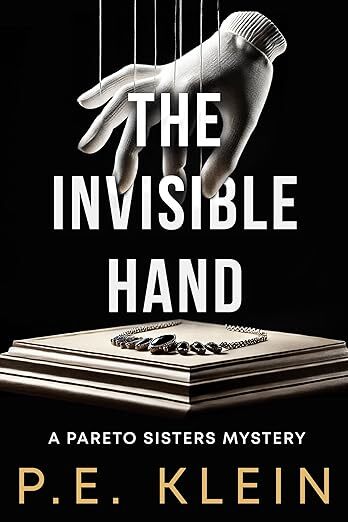
AVAILABLE ON AMAZON
Ever heard of Fenton Pareto? He's only the coolest private investigator around. But when the Bay Area turns into a nightmare of disappearing jewels, tormented pets, and mysteriously glitching cellphones, even he needs some backup. Enter Charlie and Clarke Pareto, his super-smart daughters, ready to take on the mystery that's stumping their dad.
Think you've got what it takes to crack the code? Then strap in for a rollercoaster ride with the Pareto sisters, as they match wits with a remote enemy who's controlling the chaos like a puppet master. And just when you think it couldn't get crazier, the sisters get framed for a crime they didn't commit!
But, how are the sisters supposed to clear their names while dodging booby traps, weaponized music, and dangerous QR codes? With a hefty dose of courage, a dash of stubbornness, and a custom-made secret weapon - their razor-sharp minds.
The Invisible Hand is the first heart-stopping book in an epic trilogy, where the Pareto sisters dive headfirst into a world of secrets, danger, and shocking discoveries. Inspired by the author's own experiences in Menlo Park, California, this story will have you flipping pages like there's no tomorrow.
So buckle up, detective, and remember: in this game, nothing is as it seems.
February 14, 2025
Stealing Time for Your Dream in 2025 - Part 2: What is Time?

What is time?
Unlike oxygen, an element which is objectively, scientifically definable, and more or less beyond our control, time is relative to perception and subject to choice. “Time,” Melville wrote, “began with man.” The Type C (creative) Personality learns to redefine time subjectively, in order to become successful by his own standards. Objective time, dictated by Greenwich Mean Time with an occasional correction for NASA, leads only to the conformity of repetition. Subjective time alone allows us to distinguish ourselves and to achieve our dreams of success.
Logos vs. Mythos
According to the classical Greeks, the two primary ways of perceiving the world were known to them as logos (for the Accountant’s logic) and mythos (for your onboard Visionary’s simultaneity). The Visionary’s belief in eternity in every moment is what makes the dreamer’s life change from barely bearable to ever enthusiastic. “To himself,” Samuel Butler wrote, “everyone is immortal. He may know he is going to die, but he can never know that he is dead.” The Visionary’s eternity is the experience of mythic time that occurs when you “lose yourself” in the pursuit of your dream. Its Brer Rabbit’s “briar patch” speech: “Throw me anywhere, but please don’t throw me in the briar patch!” The briar patch, of course, is Rabbit’s favorite place, his home.
Sometimes you’ll meet an old schoolmate after years and have the experience that “it seems just like yesterday” that you were having this exact same argument, or laughing for the same reason known only to the two of you. A moment passes, as the Accountant wrests control from the Visionary: “But, on the other hand, it seems every bit like the twenty years it’s actually been.” Has it been twenty years, or was it just yesterday? Faulkner said: “There is no such thing as was; if was existed there would be no grief or sorrow.” To the Visionary, time exists always in the present.
Accountant’s time
To the Accountant, who’s kept track of the years--and also the months, weeks, days, hours, minutes, and seconds--precisely, it’s been exactly twenty years, and he can prove it by reciting all the things that have happened to both of you in the interim. The Accountant clocks time with digital precision, obsessive checks with the Internet’s time services. The Accountant’s time is what keeps society sane, if you call today’s society sane.
But when the Accountant’s insistence dominates, you are denied making your dreams come true. The Accountant, nervous about anything intangible or “unseen,” doesn’t believe in dreams; or, at best, assumes the worst about them: “They¹re only dreams.” Human beings can’t fly.
Visionary time
To the Visionary, whose relationship with that same friend is/was intense, it’s just yesterday. The Visionary clocks time only by reference to intensity. Lovers live from embrace to embrace, the time that’s passed between them not counting. Have you ever felt like life would pass you by when you’re stuck in an endless left-turn lane during rush hour? How long does a second last if you’re perched at the parachute door of a plane at 15,000 feet about to make your first jump? How long is forty seconds during a 6.6 earthquake? Or at the edge of a cliff, about to rappel for the first time? A friend of mine described an encounter with a problem customer, “I spent an eternity with her for an hour and a half yesterday.”
The Visionary brings you mythic time when you engage in your dream with all your heart, mind, and soul; when you are occupied in doing something that "takes you out of time," or "takes you out of yourself." You're literally ecstatic--which, from its Greek origins, means "standing outside" yourself. "I don't know where the time went," is what you say when you've just passed fourteen hours creating the whole magical kingdom of Timbuktu on your drawing board--and your spouse, sent by the worried Accountant to tell you you've missed an important dinner party, is banging on the door because you've taken the phone off the hook.
Like Alice's White Rabbit, the Accountant would always have you believe that you’re late for a very important date. And the Accountant doesn’t like it one bit when your Mind’s Eye stops to question how important that date may be; or, whether you made the date in the first place or whether it was made for you. Dreamers insist on making their own dates because their Mind’s Eyes (the Mind’s Eye being that part of your mind that’s aware of the conflict between the onboard Accountant and the onboard Visionary) have learned how to insure that mythic time gets preference over logical time.
You’ve had this experience: You’ve told yourself you’re just going to steal "two hours" to work on your dream. You go into the briar patch. One hour and fifty-five minutes have gone by, during which you've been lost--fully engrossed in your quest, without a thought for the outside world that operates on the Greenwich clock. The hours have passed "like a minute" (the Visionary’s way of talking makes the Accountant crazy). Then, you look up at the clock to discover that only five minutes remain of your bargained for two hours. How did you know to look up at the five-minute mark? Because your Accountant never sleeps, even when he’s been taken off duty. If you decide to remain in the mythic time of your dream work beyond the five minutes remaining--that is, beyond the exactly two hours you set aside--the Visionary has won this particular encounter. The Accountant has lost. If you decide to quit "on time," you may think the Accountant has won, and the Visionary lost.
What’s wrong with this win-lose scenario is that it’s exhausting, and impossible to maintain in the long run. Most people, faced with this constant natural strife between the two aspects of their minds, have allowed the Accountant to take over entirely as the only peaceful alternative. They’ve chosen the Accountant’s conservative, safe way of behaving because the daily battle is too costly in energy and emotion. If the Visionary "wins" the five-minute battle, for example, and you continue working on your new invention for another four hours instead of the two you’d set aside, guess how hard it’s going to be for the Accountant to agree to the next two hours you want to steal. The Accountant will use every instrument in the arsenal of procrastination to postpone the trip to your dreamer’s workshop.
How to avoid losing time
Francesco Petrarch: It is appointed for us to lose the present in the expectation of the future.
Petrarch, the first "Renaissance man" and precursor of Eckhart Tolle, was aware that we spend a large majority of our time "somewhere else" than in the present moment. Planning for the future, worrying about the past--so much so that by the time you reach middle age the two horses, Past and Future, are engaged in a life-and-death race along your internal timeline. Competing for your vitality, stealing your present. The time you spend on past responsibilities, past regrets, past relationships, eats into the time available for growth and progress toward your future goals.
If we don't recognize "what’s going on here," as Accountant time and Visionary time battle in our perceptions, we can get very confused. When we get confused, the Accountant can take control of our lives. For most people, the Accountant has been in full control. Consequently, they are frustrated, bored, caught in a rut. With the help of Mercury’s powerful wand--whose two snakes represent the taming of past and future around the strength of present awareness--the entrepreneur’s now-open Mind’s Eye can transform the bloody battlefield into the altar of your hopes and dreams. Awakening his Mind’s Eye, Jack London said:
I shall not waste my days in trying to prolong them. I shall use my time.
This anti-Accountant declaration is made by your Mind’s Eye--which knows that only by marrying the Accountant’s logic with the Visionary’s myth will the present be captured for effective dream work, in lieu of the Visionary wasting the present in daydreaming, or the Accountant in obsessing about the past and the future. When your Mind’s Eye takes charge of these constant time wars, productivity combines with peace of mind. The photographer Ansel Adams said, "I’m amazed at how many people have emotional difficulties. I have none. If you keep busy, you have no time for them."
Next: Work-management doesn’t work
February 12, 2025
Author Spotlight: An Interview with Leo Daughtry
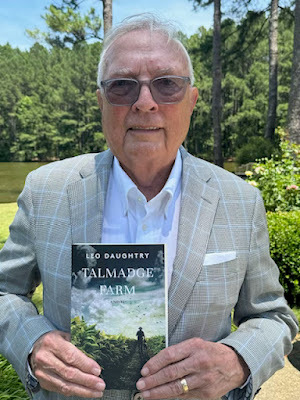
What inspired you to write “Talmadge Farm?”
I lived through changing times, particularly the 1950swhen there was
nearly complete segregation in the South, especially inrural areas.
Sharecropping was common, and women did not divorce inthose times
because it was considered demeaning, a failure. Then inthe 1960s,
everything began to change. Sharecropping disappeared,birth control
entered the picture, and women could live life with morefreedom and less
dependence on men.
Can you tell us more about your family history and itsconnection to
North Carolina and tobacco? How did this environmentinfluence your
writing? Beyond the direct associations with tobaccoand North
Carolina, are there more subtle aspects of yourupbringing and family
history that influenced your writing?
Tobacco was king in North Carolina. People practicallyworshiped it. Where
I grew up, it put food on the table. Cotton was more upand down, but
tobacco provided financial stability, not just forfarmers but for the whole
community. My family grew tobacco, sold fertilizer andseed, and managed
a tobacco auction. It was our whole world.
You have had a successful career as a lawyer and anAir Force
Captain before that. What prompted you to pursuewriting fiction?
I always had the idea for this particular story in myhead. The 1950s and
1960s were two decades that changed the world, and a farmwith
sharecroppers is a bit of a pressure cooker environment.You have the
farm owner’s family – in many cases people of wealth andentitlement –
living just down the driveway from the sharecroppingfamilies. The
sharecroppers were poor and had limited options, so theyfelt stuck living
on a farm that didn’t belong to them doing backbreakingwork with no way
out. It’s a situation that lends itself to drama:families with major differences
in class/race/socioeconomic status living in such closeproximity to one
another.
How has the landscape of tobacco farming changed, andhow did you
incorporate those changes into the plot of “TalmadgeFarm?”
Probably the biggest change was the shift fromsharecropping to migrant
workers. Today, tobacco farmers are large corporationsthat use migrant
workers as laborers. But in the 1950s, farming reliedalmost completely on
sharecropping, which was a hard life. Tobacco farming isphysically
demanding work, and sharecroppers needed the help of allfamily members
to complete the various steps – planting, seeding,suckering, priming,
worming, and cropping – of harvesting the crop.Sharecroppers at one farm
would help sharecroppers at the neighboring farm becausethey did not
have the resources to hire extra people. In the 1950s,sharecroppers were
unable to get credit anywhere but at the general storeand maybe the feed
store. They truly lived hand to mouth all the time, onlyable to pay their
debts after the tobacco auction in the fall. Hence thephrase “sold my soul
to the company store.” Sharecroppers often turned tomoonshining as a
way to make extra money.
As I describe in the novel, sharecropping began todisappear in the 1960s
as children of sharecroppers started taking advantage ofnew opportunities
that the changing society offered. Migrant workers tookover the labor of
farming. In addition to labor changes, new machineryimproved the
industry. N.C. State was instrumental in developingadvances in the
farming world. Legislation changed and farmers wereallowed to have
acreage allotments outside of the land they owned. Itouch on all of these
changes in the novel.
Are any of the characters in your book based on realpeople?
Not really. The closest characters to real people in mylife are the
characters of Jake and Bobby Lee. Jake is a Blackteenager who wants to
escape farm life and ends up running away to Philadelphiato become a
success. Bobby Lee is a young Black soldier stationed atFort Bragg. On
the farm where I grew up, there was a Black sharecroppingfamily with four
sons, the youngest of whom was my age. We were very goodfriends. All of
the boys were bright and athletic, could fix anything,yet were limited in
their opportunities. They didn’t have a school to go toor a job to look
forward to. Their only options were to stay on the farmor join the army. The
character of Gordon, while not based on any one person,reminds me of a
lot of men I knew who did not treat women well, who wereracist, who
enjoyed the status quo and were resistant to anythingthat threatened their
way of life.
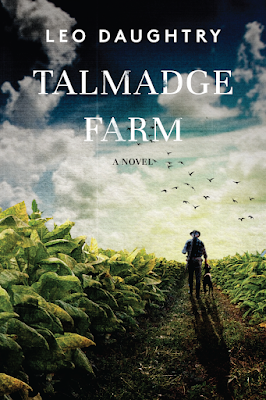
AVAILABLE ON AMAZON
In addition to the changing tobacco farmingmethodologies, the 1950s
ushered in a period of profound social change, markednotably by the
introduction of credit cards. How did these outsidefactors impact
farming, and in what ways did they inform thedevelopment of the plot
in “Talmadge Farm?”
In the novel, Gordon is the president of the local bank,yet he resists the
advances in the banking industry, including credit cardsand car loans and
the incursion of national banks into rural communities.Gordon’s father, who
founded the bank, was a brilliant man adept at navigatingthe bank through
changing times, but Gordon simply doesn’t have the smartsto see what’s
coming, and no one can get through to him. He’d ratherplay a round of golf
than look at the balance sheet. So between the changingfarming
landscape and the evolution of new banking practices,Gordon is getting
squeezed from both sides of the ledger as it were. Itproves to be his
downfall. I think that’s one of the great strengths ofthe plot – how
everything is tied to everything else.
How did other social changes – including racerelations – impact the
tobacco industry and your writing?
In the 1960s, the minority labor pool available to farmtobacco began to dry
up as kids started moving up north or joining the army.We see this in the
novel through the characters of Jake and Bobby Lee. Ellais another
example. She’s the Black teenage daughter of asharecropping family, and
she hates farm work. She ends up enrolling in asecretarial program and
getting a job at the county clerk’s office, opportunitiesthat were unheard of
in the 1950s.
The Surgeon General issued a groundbreaking report 60years ago on
the harmful effects of smoking. How did this pivotalmoment influence
your approach to writing? What firsthand impacts didyou observe
while coming of age among the tobacco farms of NorthCarolina?
Most people where I lived didn’t believe the SurgeonGeneral was accurate
in that report. Most everyone smoked. People viewed it asthe government
coming in and trying to tell us what to do. A prevailingtheme was that the
government was trying to get rid of tobacco but wasn’tdoing anything
about alcohol. One notable exception I remember is thatgood athletes in
the 1950s were discouraged from smoking, so maybe thecoaches were on
to something that the rest of us weren’t ready to hearyet. In the novel, we
see Gordon’s constant frustration at what he views asinterference from the
government, while other characters, mostly ones involvedin the medical
community, begin to appreciate that smoking was bad forone’s health.
How did you address the plight of women in the novel?
In the 1950s, women were very limited in theiropportunities. There were
very few professional opportunities for women outside ofteaching, nursing,
and working as a secretary. Divorce was scandalous andunheard of in
those days. We see lots of examples of this in the novel.But of all the
characters, it’s two of the women who have the clearestmoral compasses:
Claire, Gordon’s wife, and Ivy, the Talmadges’ maid. Bothof them see
more clearly than anyone else where Gordon is going offthe deep end, but
they are nearly powerless to do anything about it.
The novel touches on themes of privilege, racialinjustice, and the
struggle for autonomy and dignity. How did younavigate these
sensitive topics while crafting the narrative, andwhat challenges did
you encounter along the way?
I lived through this time, and I witnessed first-handpeople who enjoyed
privilege that was unearned as well as racial injusticesthat denied Black
people access to the same opportunities as white people.And yet most
people – white and Black – were simply striving to make abetter life in an
honorable way. I tried to infuse all of the characters in“Talmadge Farm”
with dignity and humanity, even Gordon, who finally getshis comeuppance
in the end.
The novel is described as a "love letter to theAmerican South." Can
you expand on this sentiment?
As I look back on my childhood, in many ways it was awonderful time to
grow up. It was safe. We never locked our doors. Ourwhole life existed just
in that area; it was a long trip traveling to Raleigh,which was only 60
minutes away. There was a strong sense of community, ofchurch, of taking care of each other
Ultimately, what do you hope readers will take awayfrom “Talmadge
Farm?”
I mainly hope they will be entertained by a great storyabout three families
who called Talmadge Farm home during the tumultuous timesof the
1950s-1960s.
What impact do you aspire for the book to have ondiscussions about
history, identity, and resilience in the AmericanSouth?
We have now moved on from the post-Civil War time and theJim Crow
period to a place where we’re beginning to find ouridentity as a state and
region. In the 1950s, North Carolina was one of thepoorest states in the
country. Our economy was dependent primarily on tobaccofarming but
also textiles and furniture making, none of which paid aliving wage.
Segregation was rampant, and minorities had fewopportunities to improve
their lot in life. Our university graduates who studiedcomputer science and
technology ended up leaving the state to find jobs inthose industries. That
all began to change in the 1960s with the enforcement ofdesegregation,
the advent of birth control, and changes in farmingregulations and
methods.
Another major turning point in our state’s economy waswhen
Governor Hodges convinced IBM to move from New York toNorth Carolina
as part of the development of the Research Triangle Park.A large number
of technology and pharmaceutical companies followed suit,and there was
a ripple effect that extended across the state, even toareas like Hobbsfield,
our fictional town in “Talmadge Farm.” My hope is thatreading this novel
will help people understand how we got to where we aretoday.

